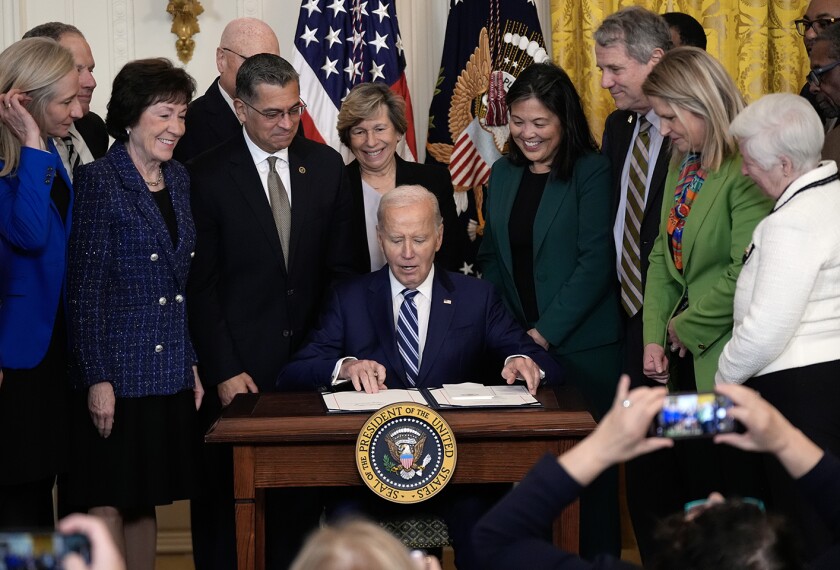It’s hard to think of an easier target for outrage than a principal bent on “dumbing down” his school. A headline on such a dishonest shortchanger of unwitting children can draw righteous indignation from just about any reader—and that’s why media outlets pounce on them.
In December, a memo by an East Harlem high school principal admonishing teachers for not getting enough of their students to pass was leaked to the New York City press. Several outlets ran with it, and the online Drudge Report linked the juicy story, presumably drawing millions of hits. The principal, Bennett Lieberman of Central Park East High School, is paying a price for being publicly labeled as a promoter of what President Bush calls “the soft bigotry of low expectations.”
The story is worth a closer look. A thoughtful analysis of Lieberman’s memo elicits much more than the knee-jerk reaction of fury and disdain.
The gist of Lieberman’s memo to his faculty reads:
“If you are not passing more than 65 percent of your students in a class, then you are not designing your expectations to meet their abilities, and you are setting your students up for failure, which, in turn, limits your success as a professional. If you are not reaching a 65 percent pass rate you must look at all variables, including homework policy, homework amount, grading policies, and type of instruction you are presenting and whether it is accessible to your students. I would like to remind you that unless you are scaffolding your instruction and working through your assignments with your students, as opposed to simply assigning and expecting work, you will not be getting back quantity or quality.
“Most of our students come from the lowest third percentile in academic achievement, have difficult home lives, and struggle with life in general. They DO NOT have a similar upbringing nor a similar school experience to our experiences growing up. We must all remember this as we work with them and for them to make them successful.”
If you have worked in schools and seen kids pushed day after day beyond their frustration level, mandated to do work above their capabilities, you know that Principal Lieberman’s words have some merit. He goes wrong in emphasizing the stats that he wants, but he is working within a system—exacerbated by the federal No Child Left Behind Act—that patently puts statistics and numbers above flesh-and-blood students’ needs.
Lieberman is right that every child should feel successful in school. However, it’s a reality that many students for many reasons come into school with below-grade-level skills. The system’s insistence on uniform “high expectations” (code for “everyone must pass the grade-level-standards test”) does a tragic disservice to children in need of specialized academic support. It leaves them behind. The solution is not merely passing them or testing them to death, but assessing students’ needs, meeting them, and pushing them forward.
The frustration of one’s inability to measure up within an indifferent institution is a major reason that kids check out or drop out.
If a boy reads three levels below his grade level, he shouldn’t be made to feel like a failure in every lesson. If a girl has trouble with her times tables, forcing advanced algebra on her is not a solution. The resulting frustration of one’s inability to measure up within an indifferent institution is a major reason that kids check out or drop out.
The traditional 25-to-30-students, one-teacher classroom simply doesn’t meet many students’ needs, and the empty exhortation of “I have high expectations for all students” is a pathetic compensation for the crucial missing infrastructure to support struggling children.
How can a student reach the penthouse without an elevator key? We’re dubiously telling that student to fly to the top floor. We say we expect him to get there, but our system shrugs at the vital investments (smaller class size, more academic-support services, a greater initiative to retain experienced teachers, to name a few) to bring that student up. Of course, reforms beyond the school walls are also necessary to improve students’ lives and achievement.
No Child Left Behind may be out of vogue—“[It] may be the worst brand in America,” according to House Education Committee Chairman George Miller—but we still seem bound by NCLB’s core ideology that touting “high expectations” and decrying anything else as bigotry is the only viable course. The outrage over Principal Lieberman’s hot-button memo is a case in point.
Lieberman may have set off a political firestorm within his school with his memo, but perhaps a thoughtful discussion can result about how to break free from catchphrases and accountability models that impose damaging, unrealistic “expectations.” We must look carefully at how we value students and how we are unintentionally punishing them.




